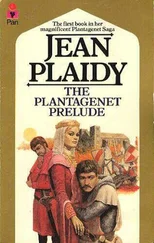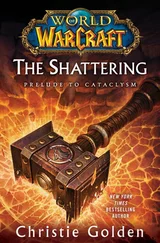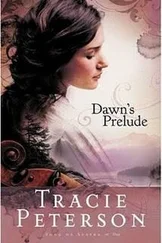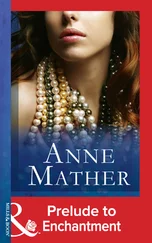Gerald Kersh - Prelude To A Certain Midnight
Здесь есть возможность читать онлайн «Gerald Kersh - Prelude To A Certain Midnight» весь текст электронной книги совершенно бесплатно (целиком полную версию без сокращений). В некоторых случаях можно слушать аудио, скачать через торрент в формате fb2 и присутствует краткое содержание. Жанр: Старинная литература, на английском языке. Описание произведения, (предисловие) а так же отзывы посетителей доступны на портале библиотеки ЛибКат.
- Название:Prelude To A Certain Midnight
- Автор:
- Жанр:
- Год:неизвестен
- ISBN:нет данных
- Рейтинг книги:3 / 5. Голосов: 1
-
Избранное:Добавить в избранное
- Отзывы:
-
Ваша оценка:
- 60
- 1
- 2
- 3
- 4
- 5
Prelude To A Certain Midnight: краткое содержание, описание и аннотация
Предлагаем к чтению аннотацию, описание, краткое содержание или предисловие (зависит от того, что написал сам автор книги «Prelude To A Certain Midnight»). Если вы не нашли необходимую информацию о книге — напишите в комментариях, мы постараемся отыскать её.
Prelude To A Certain Midnight — читать онлайн бесплатно полную книгу (весь текст) целиком
Ниже представлен текст книги, разбитый по страницам. Система сохранения места последней прочитанной страницы, позволяет с удобством читать онлайн бесплатно книгу «Prelude To A Certain Midnight», без необходимости каждый раз заново искать на чём Вы остановились. Поставьте закладку, и сможете в любой момент перейти на страницу, на которой закончили чтение.
Интервал:
Закладка:
It was a sealed, silent house, solid in comparison with those shifty, house-shaped vapours that had crept behind her. Yet it looked sick, sick and bad. The spiked area-railings were rotten brown teeth. The basement was a mouth. The windows were veiled eyes under cataracts of fog. She had to go to the door and knock. She struggled, but something irresistible — something flabby and cold in the small of her back impelled her forward.
There loomed the great grey door, blistered with age and dampness. There hung the iron door-knocker, red with rust. Behind her were gathered all the powers of darkness. They were whispering. They were closing in, jostling her. Something dead yet alive, a gelatinous something that had the colourlessness and the coldness of twilight in deep water wrapped itself around her right hand.
This Thing, so cold and so pale, palpitated like the heart of a bird, but mixed with the palpitation there was a sort of twitching and squirming.
She lifted the knocker and let it fall. As the reverberations and the echoes died, the door opened and something she could not see reached out and dragged her inside and the door slammed -
And she awoke with a scream of terror, in her bedroom. The fire was not yet out. Something was rattling on the floor. Asta cried: ‘Who is it?’ and switched on the light. It was a little bedside table rolling itself still on the carpet in the debris of a glass cigarette-box. She must have struck out and knocked it down.
Laughing and crying with relief, Asta got up, put on a warm dressinggown, and made herself a cup of tea. She said to herself sturdily that there was no use trying to sleep again. In point of fact, she was afraid to sleep again.
She wandered about the house and waited for the dawn, brooding…
26
Milton Catt . Here, potentially, was anything in the world. He was a beautiful man, a masculine man, a man at whom every woman looked twice. He had the head and the body of an Apollo — a bronze Apollo exquisitely finished about the head in coppery gold. Imagine a shy, withdrawn, discontented, and slightly sullen Apollo. He inspired in women a devouring passion; they felt that in his embrace they might experience the ecstasies of those women of the Ancients that had in unimaginable orgasms slaked the brief lusts of Olympus. Milton Catt was a physical culturist. He strove with the gods: he fought the earth — he wrestled with the law of gravity. He was a weightlifter. Twisting himself into strange attitudes he could get tremendous weights away ffom the ground by means of the Dead Lift, the Snatch, and the Bent Press. He never travelled half a mile without a pair of Patent Spring Crusher Grips in his trouser pockets, and as he walked he squeezed them rhythmically, breathing in and holding his breath until he could hold it no more and then letting it out in a fine trickle — all the time squeezing and slowly relaxing the grip of his hands on his Patent Springs. It was common knowledge that when he was at home, Catt worked hard stretching a springy contraption called a Buster. He stretched and relaxed, stretched and relaxed, stretched and relaxed, building and building his body.
Now he had a sun-ray lamp. Recently he had married an elderly woman of independent means, the widow of a crockery manufacturer named Woodware, a half-sober lady with feverish eyes and tremendous eyebrows, at least thirty years older than himself. She had bought him the lamp. He owed his tan to her. Since their marriage, the eyes of ‘the widow Woodware had grown even more feverish. Several widows, spinsters, and unhappy wives in Asta’s neighbourhood — lifting the corners of their mouths and exchanging glances — thought that they could guess why. They recognized frustration when they saw it.
Catt, despite his enormous muscles, was a humanitarian. He shuddered at the thought of slaughtered beasts, yet he ate steak because he believed that steak was necessary for the proper development of the Apollonian body. He loved lambs, and he loved lamb chops. He loathed offal on the butcher’s slab; yet he was unable to resist fried liver or grilled kidneys. He adored Woman, but was girl-shy. He had four albums of photographs of himself illustrating the development of his muscles. What did he want muscles for? To exhibit. But why?
Catt, surely, thought Asta, might find himself involved, one foggy afternoon, in a certain sort of crime. People had expected too much of this young man. He had been embraced as a bronze god and sent away with contemptuous smiles — less than a man. Could it be that Milton Catt, desiring to prove himself to himself, had chosen a certain moment to demonstrate himself ‘to himself, using the body of a female child who expected nothing?
Asta sipped her tea.
How about little Mr Scripture? He was a nobody, indescribable. For a living he worked as an accountant and seldom went out without his wife, Oonagh, who was somewhat youngei than himself.
He always wore glasses, never wore a hat, was getting bald, and had a noticeably delicate way of politely insinuating himself into your company. There seemed to be no harm in the little man.
But Oonagh was a good deal taller than her husband; she went in for conspicuous hats, and spoke in an affected way. Winter and summer she wore some sort of fur — in the winter a mink-marmot coat somewhat the worse for wear — in the summer the pieced-together bits of some sliced-up mink, real mink in a strip about three inches wide and two feet long. Oonagh publicly despised her husband. She laughed at the things he said. When he wanted to tell a story, her great glottal laugh sucked it away like a rusty pump, leaving the poor little man high and dry. It was easy to see that she dominated him — hated him, yet had no idea of how to live without him. As for her husband, a schoolgirl might perceive that she was a burden to him but that he needed her, as a buzzer needs a battery. Or he was afraid of her.
Such a man, it might be argued, would look for some way to make the most of his manhood. He might do evil in order to keep it locked up in his heart — to be able to smile to himself occasionally, between midnight and dawn.
‘You think I’m nobody,’ he would say, inside himself. ‘I am not nobody. I’m dangerous, but you’ll never know.’
Asta remembered that a little man not unlike Mr Scripture had been convicted of firing ricks not far from where she had lived thirty years before. He was a tailor with a club-foot, appropriately nicknamed ‘Rabbits’; he really did look remarkably like a rabbit escaped from a snare, hopping and lamely bobbing, twitching its poor little nose. A convicted poacher had been suspected, but at the last moment Rabbits came forward with the pride of hell in his eyes and the terror of the magistrate in his quavering voice, and confessed, oflering incontrovertible evidence against himself. Asked why he had put a match to three haystacks, Rabbits had replied: ‘Because I wanted to.’
Rabbits had been married to a big, noisy wife — like Crippen, or like Scripture. Mr Scripture might easily have killed Sonia Sabbatani. Asta could see the little man, prim and respectable, coming home an hour or two late on a foggy afternoon. Out comes Oonagh, sloppy in a sweaty old rayon dressinggown, stuffing back into place a pale, pear-shaped breast, tightening her girdle, at the same time screaming: ‘Where have you been?’ Delayed by the fog, Oonagh dear. ‘— And I suppose you expect me to sit and wait for you? Open yourself a tin of salmon, my Lord-and-Master, and bring me up a cup of tea when you’ve finished. And mind you wash the plate. I’ve got a pain. I’m lying down. You and your Fog! Ach , you shrimp!’
And Mr Scripture with a couple of words of cringing acquiescence goes to the kitchen and puts on the kettle … and smiles at the dirty dishes. The kettle sings and bubbles; and so does his heart… .
Читать дальшеИнтервал:
Закладка:
Похожие книги на «Prelude To A Certain Midnight»
Представляем Вашему вниманию похожие книги на «Prelude To A Certain Midnight» списком для выбора. Мы отобрали схожую по названию и смыслу литературу в надежде предоставить читателям больше вариантов отыскать новые, интересные, ещё непрочитанные произведения.
Обсуждение, отзывы о книге «Prelude To A Certain Midnight» и просто собственные мнения читателей. Оставьте ваши комментарии, напишите, что Вы думаете о произведении, его смысле или главных героях. Укажите что конкретно понравилось, а что нет, и почему Вы так считаете.








![Айзек Азимов - Прелюдия к Основанию [= Прелюдия к Академии // Prelude to Foundation]](/books/435122/ajzek-azimov-prelyudiya-k-osnovaniyu-prelyudiya-k-ak-thumb.webp)



